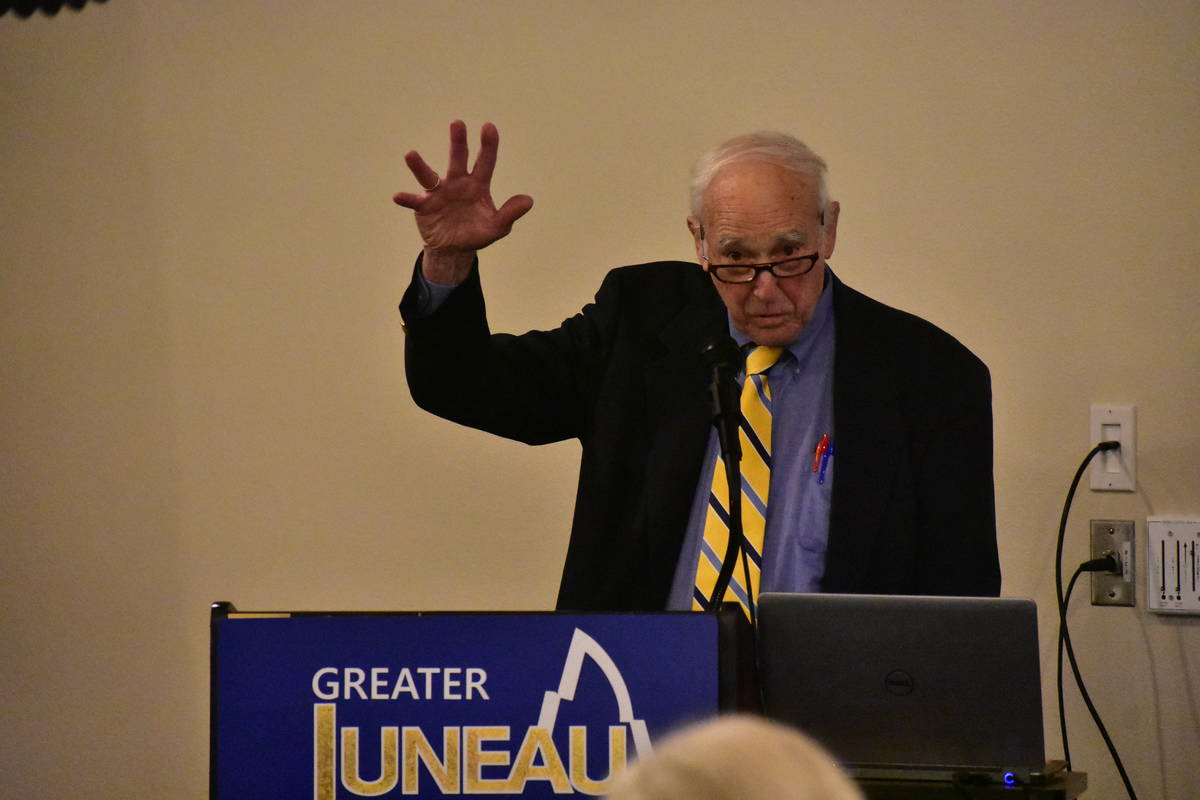Summary: We don’t have any accountability in our free-flowing, free market system, Geyman says. We have a big choice to make, he says, and it’s a political problem in how we get there. Geyman says that universal coverage will be cheaper and have better outcomes. Insurance companies are an unnecessary intermediary.
The floor is now open to questions.
What about the cost of going to medical school?
“I think physicians will do just fine in the new system,” Geyman says. Some of the doctors that are making over a million dollars a year may make less money.
Is there any thing states can do independently of the federal government?
There is too much federal money from programs like Medicare and Medicaid, “it’s much too complex now and it needs federal legislation.”
The best bill in Congress now is from Pramila Jayapal, D – Wash.
“Universal coverage is what it’s about,” Geyman says. The U.S. pays about twice of what other countries pay and have worse outcomes. TheU.S. is 46 in the world in terms of maternal mortality.
Who’s going to be setting the limits and standards?
“Hopefully with responsive government,” he says, which draws a laugh from the crowd. “If we’re democratic enough, it can be done.”
If we can transition to a service oriented ethic rather than a shareholder value focus, he says.
12:50 p.m.
More and more small business find it more difficult to provide health insurance for their employees. Having health care tied to employment is an inefficient system because people change jobs and costs to business are too high.
With universal coverage will lower costs for business in a number of ways. Decreased costs for employee health insurance, a healthier workplace, and more competitive globally.
Public health care is under more scrutiny than private health care, which will lower the cost of unnecessary procedures, many of which are often done for profit reasons rather than medical, Geyman says.
12: 45 p.m.
Private health insurance is the problem, we will never get to universal coverage so long as we have a fractured financing system, Geyman says.
Most of the savings of single-payer will come from a reduction of administrative costs.
12:35 p.m.
The ACA is failing, so what can we do, Geyman asks. We have three alternatives.
We can try and improve the ACA, the Republicans will come out with a plan soon, but they haven’t released any discernible plan yet.
Or there’s some form of universal health care, like every other developed country has.
If our goal is universal coverage, universal access, Geyman says, and he hopes it is. We won’t get there with the first two options.
12:30 p.m.
The Affordable Care Act greatly expanded the reach of health care, particularly Medicaid, Geyman says, but there’s a massive coverage gap.
Many employers shifted their employees to part-time and many physicians don’t accept Medicaid.
“Preverse incentives within our market based systems, profit driven increased costs in bureaucracy,” Geyman says drive the costs of health care up to where many people can no longer afford it.
“We have a market based system that fails to control costs,”
12:21 p.m.
It’s a packed house at the Moose Lodge. Mayor Beth Weldon and several members of the Assembly are present. Greg Smith, Alicia Hughes-Skandijs and Wade Bryson are in the audience.
12:14 p.m.
Dr. John Geyman, author, professor emeritus of Family Medicine at the University of Washington School of Medicine and member of the National Academy of Medicine, is speaking at the Juneau Chamber of Commerce Luncheon at the Moose Family Lodge.
He is visiting Juneau to give a series of talks on the many versions of health care reform being proposed across the political spectrum and what they mean in practical terms.

